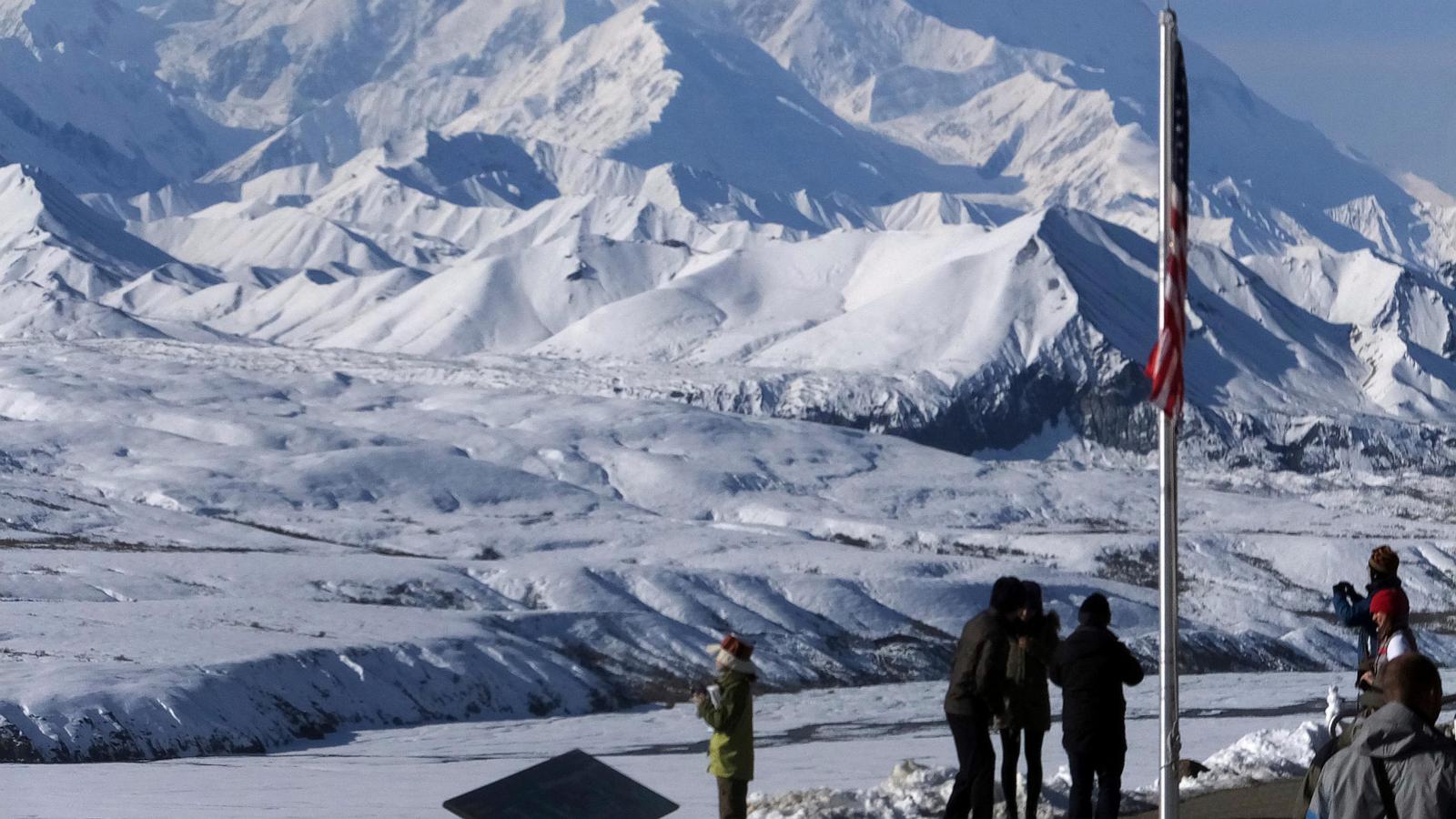Trump's Controversial Plan to Rename Denali: A Battle of History, Heritage, and Politics
President Trump's recent announcement to reinstate the name "Mount McKinley" to North America's highest peak, Denali, has sparked a heated debate. This isn't just about a name change; it's a clash of historical narratives, cultural respect, and the very essence of political power. Get ready to delve into the fascinating story behind the name controversy!
The Great Denali Debate: A Clash of Names and Narratives
Denali, meaning "The Great One" in the Athabascan language, has long held cultural significance for Alaska Natives. For them, changing the name back to "Mount McKinley" feels disrespectful, like erasing their heritage and cultural history. It is a blatant disregard for the indigenous traditions and connection to the land, a place where the people have for centuries worshipped the towering giant.
Denali: A Name Rooted in Respect
The name 'Denali' resonates with Alaska Native identity. Renaming it strips away a significant piece of their cultural heritage, thereby generating deep-seated opposition from numerous tribes including those in the Tanana Chiefs Conference. The name "Mount McKinley," on the other hand, is associated with the 25th U.S. president, William McKinley, who never visited Alaska. It wasn't chosen by Alaskans; hence, the proposal is perceived as an insult.
Mount McKinley: A Legacy of Controversy
The origin story of Mount McKinley is rife with contention. A prospector, seemingly unaware of the indigenous people's rich history, decided that it should be named after President McKinley, fueling decades of disagreement. Supporters of renaming the peak argue it should be renamed Mount McKinley because of President McKinley’s legacy of economic prosperity in the country and it shows respect to an American president. Thus, the debate goes beyond geography; it delves into the interpretation of historical impact and influence, leaving a lasting impression on American policy.
The Political Tug-of-War: A Presidential Power Play?
Trump's proposal isn't solely about the mountain itself. It underscores broader political considerations. His previous attempt at reversing the 2015 name change was thwarted by opposition from Alaska's senators in 2017. Alaska’s political figures, many Republicans, are just as strong now in expressing outrage against any such attempts to rename the mountain.
A Republican Rift: Dissent Within the Party
This proposal isn't universally accepted even among fellow Republicans. Prominent Republican Senator Lisa Murkowski has firmly opposed the renaming, highlighting the historical and cultural reasons to uphold the name "Denali." This rift highlights the potential consequences of overruling the long-standing tradition for political motives. This clash of power exposes deep political divides concerning issues of respecting native traditions, thus, creating another front in the broader culture wars. The fact that Senator Murkowski and Governor Dunleavy have opposed this proposal exposes a conflict that may split the party over this decision.
Federal Power versus State Sovereignty: A Constitutional Battleground
The core issue lies at the heart of constitutional dynamics, challenging the extent of federal versus state government authorities on matters of heritage and cultural symbolism. As states vie to protect their local culture and traditions, the debate raises a fundamental constitutional concern that threatens the boundaries between states and the federal government's powers. This ongoing debate necessitates legal analysis as to whether the current administration has such jurisdiction over something as culturally sensitive as renaming Mount Denali.
The Path Forward: Reconciling History, Heritage, and Political Will
The proposal brings to light the persistent issue of respecting Native traditions and acknowledges a balance between honoring history and recognizing cultural significance. There must be mutual respect between these stakeholders in a concerted effort to come to a conclusion, such as finding a compromise that reflects both indigenous heritage and American history, to resolve the name dispute without resorting to drastic, polarizing political action.
Seeking a Resolution Through Respectful Dialogue
Finding common ground requires open dialogue, focusing on compromise that genuinely represents respect for both Alaskan natives and American presidential legacies. By actively involving and respectfully listening to the impacted communities, the decision process can incorporate multiple points of view in an effort to develop an amicable resolution to the situation. Finding a diplomatic resolution involves meaningful dialogues to consider all sides, while preserving and celebrating America’s shared heritage and respecting cultural traditions.
Beyond the Name: A Larger Conversation about Indigenous Rights
This debate has triggered important conversations about indigenous peoples' rights to self-determination and the safeguarding of their heritage. The federal government’s ongoing discussions with several groups to ensure proper recognition of their traditional cultures and cultural history, as well as the indigenous population’s rightful concerns over federal intrusions on the sovereignty of these lands, demand respect and deserve meaningful dialogue.
Take Away Points
- The debate over renaming Denali is complex, encompassing cultural sensitivity, political maneuvering, and constitutional considerations.
- Respect for Alaska Native traditions should take precedence over politically motivated decisions.
- Finding common ground requires an open and respectful dialogue, ideally involving representatives from all sides.
- The debate should spark a broader conversation about honoring indigenous rights and preserving cultural heritage.




